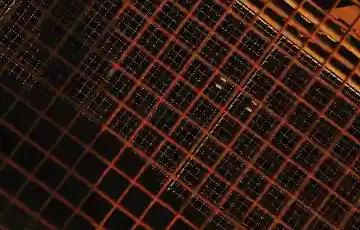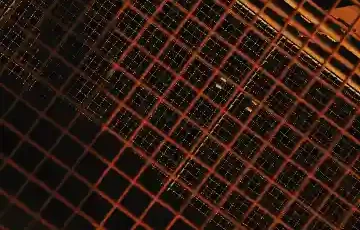Product liability under Dutch law means a manufacturer is legally liable for damage caused by defects in their product. This strict liability applies from the moment the product enters the market and is based on product defectiveness, without requiring proof of fault or negligence according to Article 6:185 of the Dutch Civil Code.
The legal framework for product liability protects consumers against damage caused by unsafe products. Therefore, businesses must understand when they are liable and how to limit risks. The regulation originates from European Directive 85/374/EEC from 1985, implemented in the Netherlands through Articles 6:185-193 of the Dutch Civil Code (BW). This strict liability under Dutch law rests on manufacturers, importers and, under certain circumstances, suppliers of defective products.
Who Qualifies as Producer Under Dutch Law?
The definition of producer in Netherlands product liability cases encompasses more parties than just the manufacturer. According to Article 6:187 BW, a producer includes:
- Manufacturer of finished products: The party that produces the complete product
- Raw material producer: Suppliers of base materials incorporated into the product
- Component manufacturer: Producers of parts that become part of the final product
- Brand holders: Anyone who presents themselves as producer by placing their name, brand or distinguishing mark on the product
- EU importers: When the producer is established outside the European Union, the importer is considered the producer
- Suppliers: Every supplier is regarded as producer if the identity of the actual producer remains unknown
Under Dutch law, this broad definition ensures consumers can always hold a liable party within the EU accountable. Consequently, online retailers and wholesalers face considerable liability risk, particularly when importing products from non-EU countries such as China or the United States.
What Constitutes a Product in the Dutch Jurisdiction?
The concept of ‘product’ receives broad interpretation in product liability cases. A product includes any movable item, even after it has become a component of another movable or immovable item. This definition explicitly includes electricity according to Article 6:187 paragraph 1 BW.
The European Commission is currently revising the product liability directive to align regulations with the digital economy. The revision proposal from September 2022 substantially expands the concept of ‘product’. Soon, digital production files, software, AI systems and associated digital services will also fall under product liability regulations. Consider, for example, navigation systems requiring traffic data to function.
This modernization proves necessary because products increasingly depend on software updates and digital services. Moreover, the Netherlands has a growing circular economy where refurbished products – previously used and restored items – are traded.
When is a Product Legally Defective Under Netherlands Law?
A product is defective if it objectively fails to provide the safety one may expect from it. The defectiveness test occurs through an ‘ex tunc’ assessment: the product is evaluated based on circumstances at the time of placing on the market, not later developments.
Article 6:186 BW mentions three central considerations for assessing defectiveness:
Product Presentation
How the product is presented partly determines whether it is defective. Incorrect labeling, incomplete instructions for use or misleading warnings render a product defective. Therefore, a producer must clearly communicate risks associated with using their product. For the average user, the dangers and consequences of ignoring warnings must be explicit.
Reasonably Expected Use
Producers must account for normal use by the intended target group. However, a supplier is not liable for damage resulting from deviant consumption behavior. Case law shows, for instance, that a supplier of freshly squeezed orange juice did not need to anticipate a consumer keeping the bottle outside the refrigerator for five days.
Time of Placing on Market
The defectiveness test is based on when the product enters the market. The mere fact that a safer product becomes available later does not make the earlier product defective according to Article 6:186 paragraph 2 BW. This protects producers against unreasonable claims based on later technological developments.
Case law has further refined the defectiveness test. The Court of Justice ruled in the Boston Scientific Medizintechnik judgment from 2015 that medical devices such as pacemakers are also defective when they belong to a production series established to have a potential defect, without the specific product needing to exhibit the defect itself.
What Damage Does the Producer Compensate in the Netherlands?
Under Dutch law, the producer is liable for personal injury, death and property damage in the private sphere. According to Article 6:190 BW, compensable damage includes:
- Personal injury: All damage through injury or death of a natural person
- Property damage: Damage to an item normally intended for private use or consumption, provided the damage amounts to €500 or more
Pure economic loss by businesses falls outside the scope. When a defective machine causes damage in a production facility, the entrepreneur cannot invoke product liability for business interruption or lost profits. Other rules of civil liability law apply here.
The revision proposal removes the €500 threshold for property damage and expands the definition of damage to include loss or corruption of data and medically recognized mental health damage. These changes substantially increase compensation possibilities for consumers.
How Does a Consumer Prove Product Liability According to Dutch Legislation?
The injured party bears the burden of proof for three crucial elements. To successfully file a damage claim, the consumer must demonstrate:
- That damage occurred: Concrete damage such as injury or damage to property
- That the product exhibits a defect: The product does not provide the safety that may be expected from it
- Causal connection: The damage was caused by the defect in the product
This burden of proof for product liability under Dutch law need not be provided with absolute certainty but must be sufficiently probable. However, complex cases involving pharmaceuticals, AI systems or smart products regularly confront consumers with evidentiary problems due to technical or scientific complexity.
The European revision proposal significantly lightens the burden of proof. The new regulation introduces presumptions of evidence favoring consumers:
- Presumption of defectiveness: When producers cannot refute non-compliance with mandatory safety requirements or manifest malfunction
- Presumption of causal connection: If the type of damage typically corresponds with the defect involved
- Disclosure obligation: Producers must, under circumstances, provide relevant evidence to claimants
Additionally, a lowered evidentiary threshold emerges in technically complex cases. Claimants then need only demonstrate that the product contributed to the damage and that the product was probably defective.
Can a Producer Be Released from Liability in Dutch Law?
Product liability under Dutch law provides six exhaustively listed defenses. According to Article 6:185 paragraph 1 BW, a producer is not liable if they prove that:
The Product Was Not Placed on Market
When the product has not left the producer, no liability exists. This defense applies, for example, to theft of products from the warehouse before they reach the market.
Mandatory Government Regulations
Liability ceases if the defect directly results from mandatory compliance with legal requirements. However, inspection requirements and guidelines that may be deviated from are not mandatory. Minimum requirements formulated by government authorities do not release from liability either. Producers in the food industry who comply with all food safety regulations can therefore still be liable for defective products.
Not Produced for Commercial Purposes
Products not made for commercial activities fall outside the regulation. This protects, for example, private individuals who give away homemade products.
Impossible to Detect Defect
Producers are not liable if detecting the defect was impossible according to the state of scientific and technical knowledge. This defense primarily addresses defects in the design and construction phase not noticed due to insufficient knowledge. The most advanced level of science and technology at the moment of placing on the market applies here, not merely the industrial practices in the relevant sector.
Defect Arose After Placing on Market
When the product was safe when placed on the market but later became defective, liability ceases. Consider spoilage of foodstuffs through incorrect storage by the retailer.
Component Without Influence on Defect
Manufacturers of components are not liable if the defect is attributable to the design of the product in which the component is incorporated.
These defenses give producers limited escape routes. The burden of proof for these exculpatory circumstances rests entirely on the producer.
When Does Product Liability Apply in the Netherlands?
Liability lasts ten years from when the product enters the EU market. According to Article 6:191 BW, the right to compensation expires ten years after the day the producer placed the product on the market, unless the injured party has meanwhile instituted legal proceedings.
Consumers have three years to file a claim. This limitation period begins the day after the injured party became aware of the damage, the defect and the identity of the liable person according to Article 3:310 BW.
The revision proposal extends the expiry period to fifteen years for health damage that manifests slowly. This change recognizes that some products – for example medicines or medical devices – only cause health problems after years.
How Do Product Warranty and Product Liability Relate Under Dutch Law?
Warranty and product liability are fundamentally different legal concepts. Warranty concerns contractual agreements between seller and buyer about the quality and soundness of the product itself. Product liability, however, concerns the legal obligation to compensate damage caused by a defective product to other items or persons.
When a product breaks or does not function properly, warranty applies. The seller must repair, replace or refund the purchase price. This is a contractual obligation based on non-conformity according to Article 7:17 BW.
If a defective product causes injury or damages other property, product liability applies. The producer must compensate the resulting damage. This liability cannot be contractually excluded or limited in relation to consumers – this is legally prohibited.
What Risks Do Businesses Face With Product Liability in the Netherlands?
Entrepreneurs who place products on the market run considerable financial risks. Product liability claims can lead to:
- Direct damage compensation: Costs for personal injury, medical treatments and damaged property
- Recall costs: Withdrawing products from the market can cost millions of euros
- Reputation damage: Negative publicity damages brand image long-term
- Legal proceedings: Attorney costs and judicial procedures require substantial investments
- Insurance premiums: Higher premiums for liability insurance after claims
Since June 25, 2023, EU consumers can collectively institute domestic and cross-border mass damage lawsuits. Implementation of Directive (EU) 2020/1828 concerning representative actions substantially increases the risk of collective proceedings. Consequently, organizations can file claims on behalf of large groups of consumers, potentially resulting in enormous damage amounts.
How Do Entrepreneurs Protect Themselves Against Product Liability in the Netherlands?
Prevention forms the best protection against product liability claims. Entrepreneurs must take multiple measures:
Comply With Product Safety Rules
Products must meet legal product requirements before entering the EU market. This includes sectoral legislation such as Machinery Directive 2006/42/EC, Toy Safety Directive 2009/48/EC or General Product Safety Directive 2023/988/EC. Compliance with these regulations reduces the risk of defectiveness, although this provides no absolute guarantee against liability.
Invest in Quality Control
Thorough testing and quality monitoring prevent defective products from reaching the market. Manufacturers must implement systematic procedures for product development, testing and continuous monitoring of product performance.
Ensure Correct Documentation
Clear instructions for use, warnings and product information protect against liability claims. Documentation must meet the expectations of the average user in the intended target group. Additionally, accurate administration is essential to document the production chain.
Purchase Appropriate Insurance
A business liability insurance covers product liability as standard. This insurance compensates damage caused by defective products and protects against the financial consequences of claims. Given the increasing risks from collective actions and the European revision proposal, adequate insurance coverage is crucial.
Make Contractual Arrangements in the Chain
Professional parties can contractually limit or exclude liability among themselves. Although this does not work against consumers, indemnity clauses and liability limitations in B2B contracts offer protection. Private label holders can, for example, arrange that the producer materially bears consumer claims.
Anticipate future legislation by taking preventive measures. The revision proposal for the product liability directive introduces far-reaching changes expected to enter into force between 2025 and 2027. Software producers, manufacturers of smart devices and companies offering digital services must prepare for expansion of their liability.
Utilize Legal Expertise for Product Liability in the Netherlands
Product liability under Dutch law requires specialized legal knowledge. The subject involves complex rules of evidence, European case law and technical questions about defectiveness and causal connection. Therefore, professional legal advice is indispensable for both prevention and disputes.
Are you dealing with a product liability issue? Contact our law firm in Amsterdam for expert advice about your rights and obligations. Our specialized lawyers analyze your situation and develop a strategy to optimally protect your interests.
Do you want to know if you are liable for damage caused by your products? Our Amsterdam lawyers assess your product liability risks and advise on effective risk management measures. Contacting specialists prevents costly mistakes and protects your business against unexpected claims.









